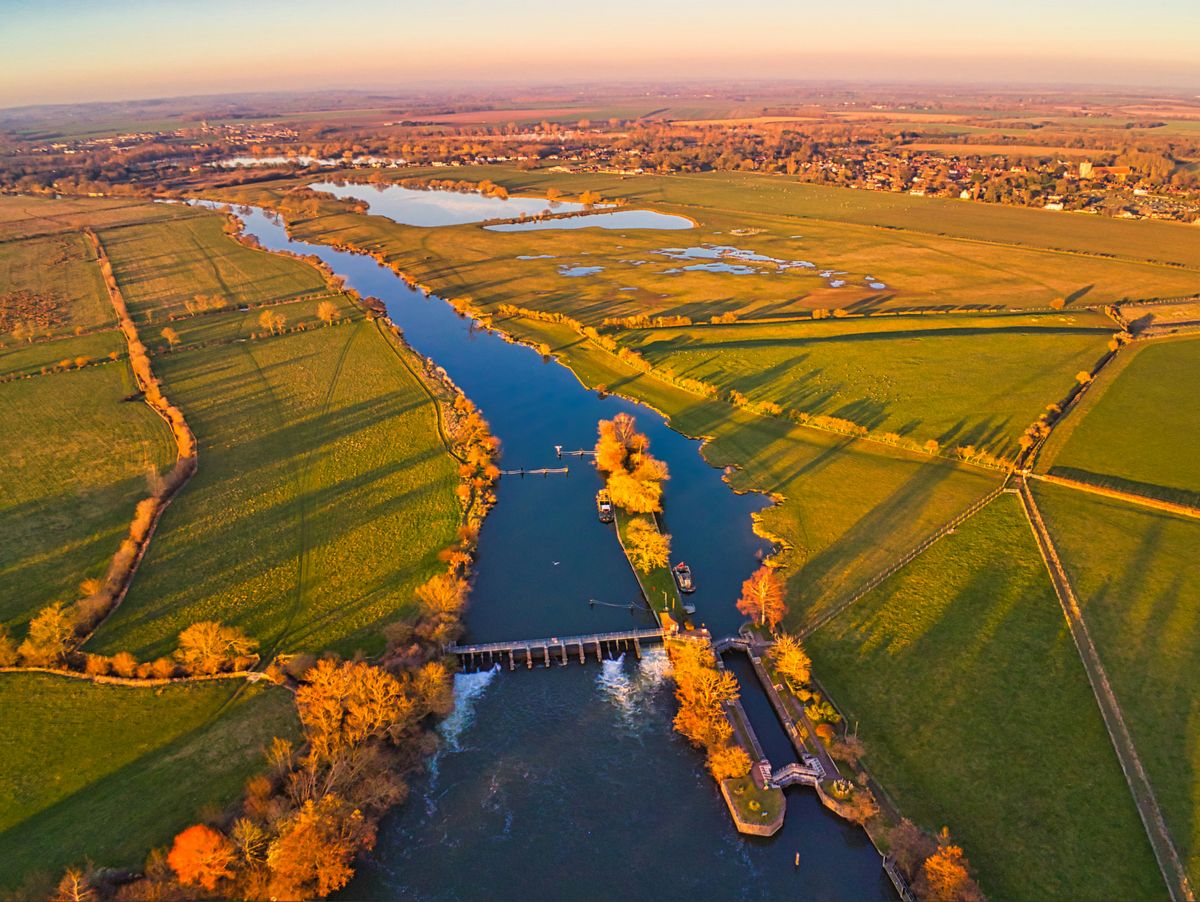Environment Agency announces sweeping cuts to its River Thames operations

The Environment Agency, the Government body that runs the River Thames, has announced that it will be drastically scaling back its river operations this summer as a result of budget cuts.
Assistant lock and weir keepers will not be recruited for the summer months, and the Agency’s riverside campsites – beloved by those walking the Thames Path – will be closed. Assistant lock-keepers have been employed on the River Thames to speed passage since the 19th century.
Thames keepers perform a unique dual role. As well as letting boat traffic through the locks, they also monitor river levels and operate the weirs at times of flooding. By doing so, they work to minimise flooding in residential areas while allowing floodplains in rural areas to take excess water.
In recent years, many locks in rural Oxfordshire have had their staffing reduced, with river users expected to operate the locks themselves. However, the busiest locks – such as those in Oxford, Abingdon, and further downstream – have been staffed by a full-time keeper, with 24 seasonal keepers recruited to ease congestion in the peak summer months. These seasonal keepers will now not be employed.
The Agency says that budget pressures have made the situation unavoidable:
Due to current economic conditions and the Environment Agency goal for long-term affordable and statutory navigation, we have had to adjust budgets for the upcoming financial year. This means prioritising our spending to focus on our statutory duties.
It admits that the result will be a significantly worse experience for river users:
We must acknowledge that these changes mean we will not meet the historic customer charters or the expectations for staffed lock assistance throughout the entire boating season. This decision was not made lightly, and we understand the impact it may have on your experiences along the Thames.
The statement goes on to say that “We will continue to make best use of our dedicated volunteer assistant lock keeper cohort.” However, the Oxford Clarion understands that volunteers have actually been advised they will have fewer opportunities to assist this summer: regulations say they can only help when a paid member of staff is on site, and with 24 fewer paid keepers, it will be harder to find locks where volunteers can help. The volunteers have been asked not to repeat this information to third parties.
At the same time, the small riverside campsites at lock sites, which the Environment Agency operates for the benefit of walkers, cyclists and canoeists, will not open this year. Again, the Agency says that budget cuts mean “we are not resourced to safely deliver campsites on the Thames… we have decided to focus on our core function of water level management and delivering a safe navigation”.
The Thames Path is one of just 14 National Trails in England and attracts walkers from around the world. Campsites were available at several locks in rural Oxfordshire, including locations near Eynsham, Dorchester and Henley. The Henley site has operated since the 19th century.
A small amount of hope for the future of the campsites is held out in the statement by Mark Hill and Maria Herlihy, the ‘Harbour Masters’ for the Thames, who say “We are looking into suitable options to reopen the campsites in the future.”
The Environment Agency is a sprawling body whose other responsibilities include monitoring the privatised water companies’ sewage outflows; flood defences; and both land and water pollution. It is chiefly funded by Government but also by charges levied on river users, such as anglers, boaters, and farmers for water abstraction.
Recent Government funding cuts have drawn sharp criticism for their impact on sewage enforcement and flood defence work. Campaigners have drawn particular attention to the record of Liz Truss as Secretary of State for Environment, Food & Rural Affairs – the department which funds the Environment Agency. Greenpeace said that Truss had “sewage on her hands” for cutting £235m from the Agency’s annual budget.
